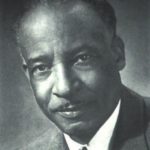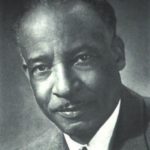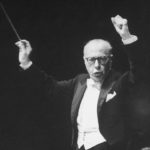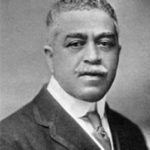Picking up on my American Scholar piece, Tom Huizenga of National Public Radio interviewed me about the fate of black classical music – and here is his interview. Our conversation was wide-reaching, and ultimately led to this exchange: Huizenga: Near the end of your essay, you write: "Might American classical music have canonized, in parallel with jazz, an 'American … [Read more...] about Why Did American Classical Music “Stay White” — Take Two
Why Did American Classical Music “Stay White”?
In 1893 Antonin Dvorak, teaching in New York City, predicted that a “great and noble school” of American classical music would arise from America’s “Negro melodies.” Dvorak’s prophecy was instantly controversial and influential. But the black musical motherlode migrated to popular genres known throughout the world. American classical music stayed white. The reasons are both … [Read more...] about Why Did American Classical Music “Stay White”?
What Happened Between Vladimir Horowitz and George Szell?
“As admirers of Horowitz’s musicianship and resilience, we must face these realities remembering that, in the end, he loaded his baggage onto his back and jogged across the finish line, smiling from ear to ear. Today, the weight of Horowitz’s baggage serves mainly to accentuate the magnitude of his ultimate triumph.” Thus Bernard Horowitz on Vladimir Horowitz. These two are … [Read more...] about What Happened Between Vladimir Horowitz and George Szell?
Busoni, Kandinsky, Schoenberg — Instinct at the Cusp
It’s a truism that, as aesthetic movements go, the visual arts get there first. Think of Impressionism, which didn’t begin to inflect music until Debussy and Ravel – decades after Monet. Expressionism is another matter: the synchrony is amazing. I am thinking of 1910: the year of Wassily Kandinsky’s first non-representational painting. Non-tonal music was simultaneously … [Read more...] about Busoni, Kandinsky, Schoenberg — Instinct at the Cusp
Harry Burleigh and Cultural Appropriation – Take Two
The annals of the Harlem Renaissance include heated debate over the practice of turning African-American spirituals into concert songs. Zora Neale Hurston Hurston heard concert spirituals “squeezing all of the rich black juice out of the songs,” a “flight from blackness,” a “musical octoroon.” She listed Harry Burleigh among the offenders. But without Burleigh … [Read more...] about Harry Burleigh and Cultural Appropriation – Take Two





